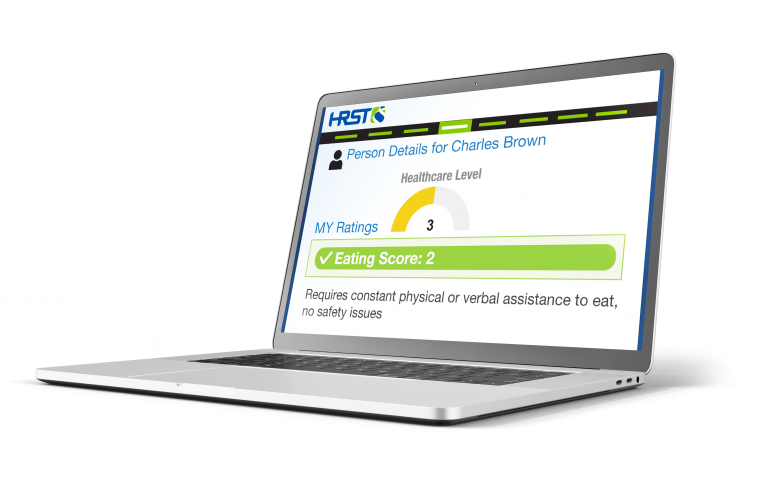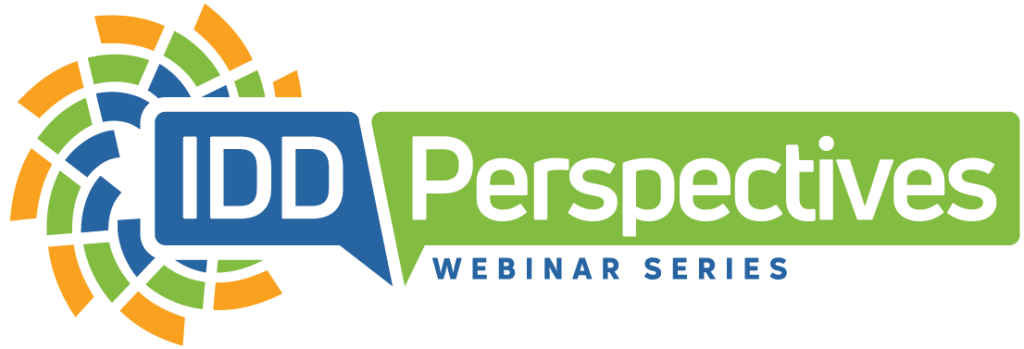
New Tool Determines Health Risks of Social Interactions for People with IDD
As social isolation measures continue, people who live with IDD are more likely to experience serious problems like loneliness or even abuse or neglect. A new tool from Health Risk Screening, Inc. helps weigh the benefits of social interaction vs. the risks of COVID-19 exposure for these individuals.
(Clearwater, FL) January 12, 2021—Research shows that people who live with intellectual or developmental disabilities (IDD) are up to three times more likely to die from COVID-19 and its complications when compared to people without IDD.(1) Those living with IDDs are more likely to live in group home settings and are often more reliant on support givers for help with activities of daily living. But these people, and the people who support them, have been subject to the same social distancing and isolation recommendations as the general population. Unfortunately, this disruption to the norm does more than interrupt routines and hinder personal growth and development—it also places individuals with IDD at greater risk of serious issues like abuse or neglect.(2)
Dr. Craig Escudé, President of Health Risk Screening, Inc., says, “The pandemic disproportionately affects people who live with IDD, making them more vulnerable to problems like loneliness and disruptions in services providing educational or therapeutic support. There must be a way to help decide whether it’s appropriate for people with IDD to continue on with certain social activities connecting them with others which helps reduce risks of isolation, depression and anxiety associated with limited social contact.”
Like most Americans, people with IDD are socially distancing, avoiding activities once enjoyed away from their homes. The reasons why are multifactorial:(3)
- People living with IDD are more likely to have underlying medical conditions, such as chronic lung disease,
- They often rely on various support givers for help with activities of daily living,
- Standard safety precautions and preventative measures may not be understood, and
- They may not be able to verbally communicate to others symptoms of illness.
But this massive disruption in health, home, and community services is already having profound effects on the estimated 7 million people in the United States who live with IDD.(4) Some studies show up to 70% of people living with IDD have lost at least some of their normal health services as a result of COVID-19, and as many as 74% have lost one or more services entirely. (4)
Many of these services, such as special education programs for youths with IDD, rely on interpersonal relationships between the youth support givers, who may help with physical positioning, toileting, feeding, among other needs.(5) Often, these same support givers are essential for helping prevent infection among people with IDD.(6) When these relationships are severed, people living with IDD may fall further behind academically, or they may suffer from regressive behavioral changes related to the loss of a structured daily routine.(5)
According to Dr. Escudé, support givers and family members need a tool to help weigh the benefits and risks of a person living with IDD returning to normal activities. HRS developed such a tool, called the Risk/Benefit Return to Activity Form, to help guide supporters in such decisions.
The Risk/Benefit Return to Activity Form addresses several key areas of risk, such as personal, situational, and health risks, to help determine whether the benefits of attending a certain activity outweigh the potential harm. Each section of the form includes questions such as:
- Can the person follow the social distancing protocol of remaining 6 feet away from others independently?
- Is the level of community spread in the location of the activity considered reasonable by health authorities?
- Does the person have any immunocompromising conditions?
The benefits are also weighed with questions like:
- Is socialization important to help manage or improve the person’s anxiety, mood, mental status, behavior, or mental health disorder?
- Does the person earn a wage when participating in this activity?
Support personnel who complete this form as part of team meetings can then share it with primary decision-makers to come to a consensus as to whether or not the person with IDD should participate. The form is available to download for anyone who regularly cares for a person with IDD.
Dr. Escudé says, “Just like others, people who live with IDD enjoy social activities which enrich and enhance their lives. Our tool can help those who support people with IDD decide whether the benefits of such activities outweigh the risks of potential exposure to COVID-19.”
Sources
- Rabin, Roni Caryn. “Developmental Disabilities Heighten Risk of Covid Death.” The New York Times, The New York Times, 10 Nov. 2020, nytimes.com/2020/11/10/health/covid-developmental-disabilities.html.
- King, Dianne. “Risks for Harm Skyrocket for People with Disabilities during Pandemic.” The SAFE Alliance, 28 May 2020, safeaustin.org/risks-for-harm-skyrocket-for-people-with-disabilities-during-pandemic/.
- “People with Disabilities.” Centers for Disease Control and Prevention, Centers for Disease Control and Prevention, Sept. 2020, cdc.gov/coronavirus/2019-ncov/need-extra-precautions/people-with-disabilities.html.
- State of the Science on COVID-19 and People with IDD. 2020, aaidd.org/docs/default-source/publication/state-of-the-science-on-covid-19-and-people-with-idd—dec-2020.pdf?sfvrsn=25893421_0.
- Constantino, John N., et al. “The Impact of COVID-19 on Individuals With Intellectual and Developmental Disabilities: Clinical and Scientific Priorities.” American Journal of Psychiatry, 28 Aug. 2020, ajp.psychiatryonline.org/doi/10.1176/appi.ajp.2020.20060780.
- “People with Intellectual and Developmental Disabilities Disproportionately Affected by COVID-19.” National Institutes of Health, U.S. Department of Health and Human Services, 28 Aug. 2020, nih.gov/news-events/news-releases/people-intellectual-developmental-disabilities-disproportionately-affected-covid-19.




